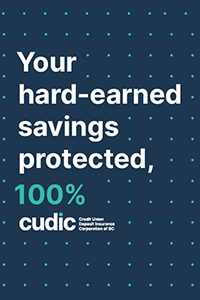A TFSA means flexible, tax-free savings
When it comes to saving and investing for your financial future in Canada, Tax-Free Savings Accounts (TFSAs) are a versatile and powerful tool. Created in 2009, TFSAs are a popular choice for Canadians seeking tax-advantaged ways to grow their wealth. Let’s explore the world of Tax-Free Savings Accounts, covering everything you need to know to harness the full potential of this financial tool.
A TFSA is a registered savings and investment account that allows you to earn income and capital gains on investments tax-free. Unlike traditional savings accounts or non-registered investment accounts, any money you contribute to a TFSA and any income or capital gains earned within the account are entirely tax-free. This unique feature makes TFSAs a valuable addition to your financial toolkit.
Key Benefits of TFSAs
- Tax-Free Growth: The hallmark feature of TFSAs is that all earnings and withdrawals are entirely tax-free. This means you keep 100% of the income and capital gains generated within your TFSA.
- Flexibility: TFSAs are incredibly flexible. You can use them for a wide range of financial goals, from saving for retirement to funding a dream vacation, buying a home, or even starting a small business.
- No Age Limit: Unlike Registered Retirement Savings Plans (RRSPs), there is no age limit for contributing to a TFSA. You can continue contributing as long as you like.
- No Impact on Government Benefits: TFSA withdrawals do not affect your eligibility for government benefits like Old Age Security (OAS) or the Guaranteed Income Supplement (GIS).
- Carryover Contribution Room: Unused contribution room carries forward indefinitely. If you don't max out your TFSA contributions in a given year, you can catch up in future years.
Contribution Limits and Rules
While TFSAs offer significant tax advantages and flexibility, there are some important rules and limits to keep in mind:
- Contribution Limit: The annual contribution limit is determined by the government and can change from year to year. It's important to be aware of your contribution room to avoid over contributing and incurring penalties.
- Contribution Deadline: There is no specific deadline to make TFSA contributions. You can contribute at any time during the year.
- Withdrawals: You can withdraw funds from your TFSA at any time, and withdrawals are tax-free. The amount you withdraw is added back to your contribution room in the following calendar year.
- Eligible Investments: TFSAs can hold a wide variety of investments, including cash, term deposits, stocks, bonds, mutual funds, ETFs, and more.
Maximizing the Potential of Your TFSA
To make the most of your TFSA, it's crucial to have a well-thought-out savings and investment strategy. This includes setting clear financial goals, selecting appropriate investments based on your risk tolerance, and regularly reviewing and adjusting your portfolio as needed.
Ready to open a TFSA? Book an appointment today
TFSA FAQs
1. What is a TFSA, and how does it work in BC?
A TFSA is a registered savings account that allows you to earn investment income tax-free. In BC, TFSAs work the same way as in the rest of Canada.
2. How much can I contribute to my TFSA in British Columbia?
The annual TFSA contribution limit is set by the federal government. If you’ve never contributed to a TFSA before, and you were over the age of 19 in 2009 when the program started, you may be able to max out your contributions. Ask us for help to determine your contribution limit.
3. Are TFSA contributions tax-deductible in BC?
No, TFSA contributions are not tax-deductible.
4. Can I hold various types of investments in my TFSA?
Yes, you can hold a variety of investments in your TFSA, including savings accounts, term deposits, stocks, bonds, ETF’s, and mutual funds*.
5. What happens if I overcontribute to my TFSA?
Overcontributions may be subject to a penalty tax. It's essential to monitor your contributions to avoid this.
6. Are TFSA withdrawals tax-free?
Yes, TFSA withdrawals, including both the original contributions and any earnings, are tax-free
7. Can I have more than one TFSA?
Yes, you can have multiple TFSAs, but your total contributions must stay within your annual contribution limit.
8. Are TFSA beneficiaries taxed?
TFSA assets are transferred to the beneficiary tax-free upon the account holder's death.
9. Can I use my TFSA savings for a down payment on a house in BC?
Yes, you can use TFSA funds for a down payment on a home, TFSA’s are very flexible, we can help you choose the right TFSA for your goals.
10. Is TFSA interest or investment income subject to provincial tax in BC?
BC does not normally tax TFSA interest or investment income, as TFSAs are tax-free at both the federal and provincial levels.
Want some additional resources? Take a look at 'Your Guide to Understanding the TFSA'
Ready to talk about saving for your future?
Book an in-person or phone appointment with a local financial services representative today.

